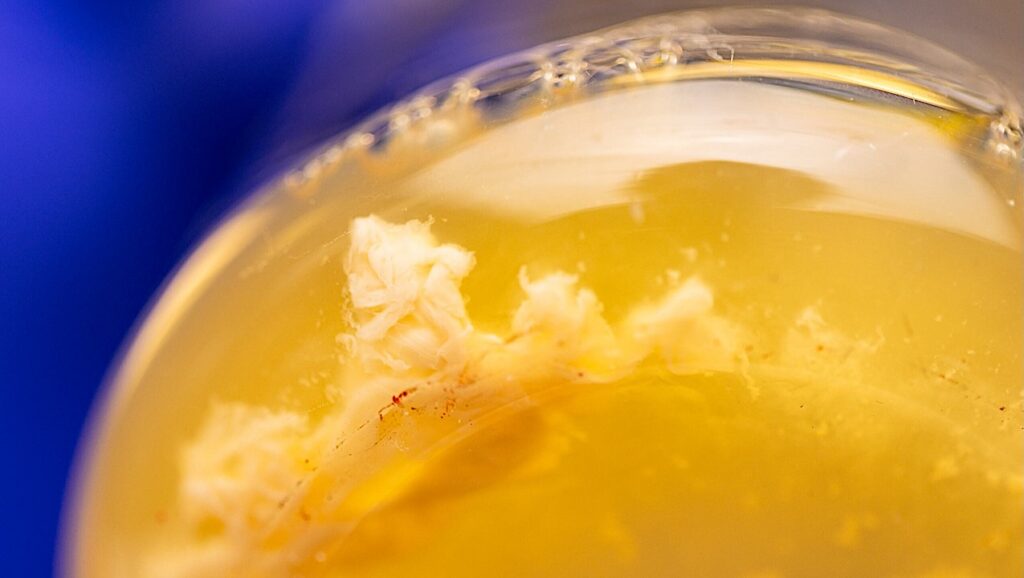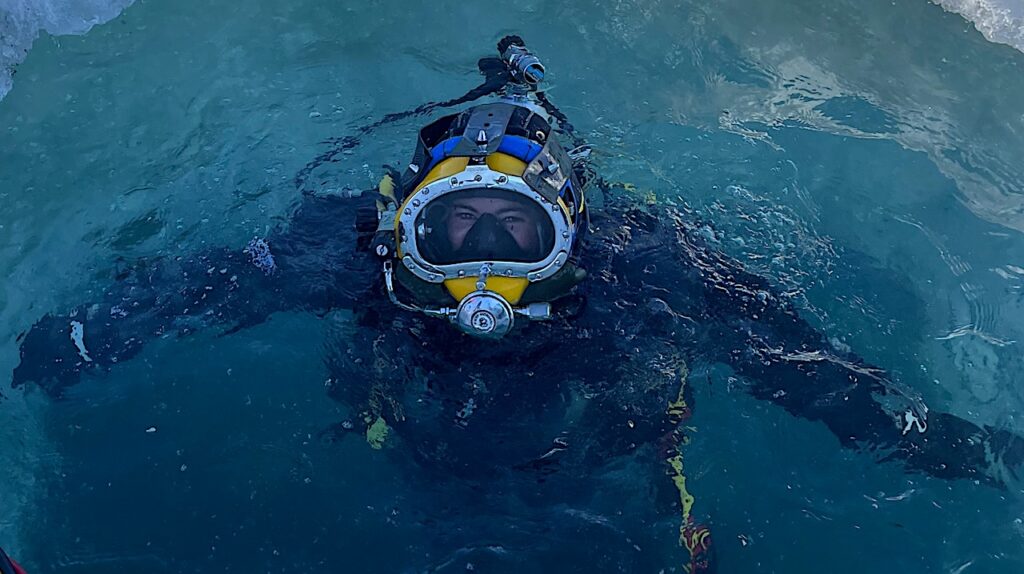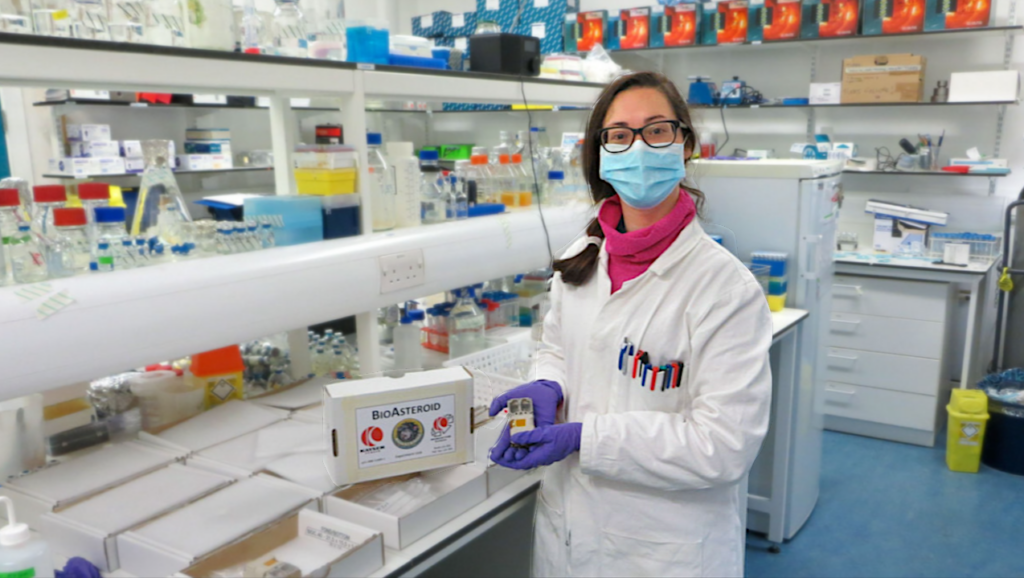NASA Spaceline Current Awareness List #1,189 27 February 2026 (Space Life Science Research Results)

The abstract in PubMed or at the publisher’s site is linked when available and will open in a new window.
In case you missed it: Hybrid Space Suit Simulator (HS3): Development, Characterization, Construction, and Usage, is a recently published large paper/open-sourcing report on the development and characterization of a spacesuit simulator for use in research. From the Introduction: “This report describes the design, development, and characterization of the HS3 during simulated EVA as a modular, customizable research tool with integrated human physiological sensors to address human health and performance EVA knowledge and technology gaps.” To view the entire report, go to: https://ntrs.nasa.gov/citations/20260000671.
Papers deriving from NASA support:
- Chung PH, Boursi B, Baris H, Leong JY, Nickel JC, Chisari E, Parvizi J, Tipton CD, Ancira J, Hochberg A, Rifkin J, Phillips CD.Variations in urinary microbiota on a short-duration space mission to the International Space Station.JU Open Plus. 2026 Feb;4(2):e00017.Note: ISS results. This article may be obtained online without charge.
Journal Impact Factor: 6.8
Funding: “Thomas Jefferson University, Sheba Medical Center, MicroGenDx, NASA, and Axiom Space provided funding in support of the research.” - Martins AMA, Biagi DG, Tsu BL, de Saldanha da Gama Fischer J, Coelho LBV, Carvalho PC, Muotri AR.Proteomic dataset of MECP2-deficient and wild-type human brain organoids under spaceflight and ground conditions.Sci Data. 2026 Feb 19.Note: ISS results. This article may be obtained online without charge.
Journal Impact Factor: 6.9
Funding: “This work was supported by grants from the NSF/CASIS grant (CBET 2126309) and NASA (80JSC018M0005) to A.R.M. P.C.C. is supported by a CNPq international grant (442655/2023 -1), NAPI Proteômica from Araucaria Foundation – Paraná Brazil, and Fiocruz INOVA.” - LeBlanc DP, Butterfield B, Jimenez-Chavez L, Zwart SR, Smith SM, Mao XW, Macias BR, Wu H.Spaceflight stressors impact on mitochondrial function and the risk for development of ocular pathology.npj Microgravity. 2026 Feb 24. Review. Early access article.Note: This article may be obtained online without charge.
Journal Impact Factor: 5.1
Funding: S.R. Zwart, S.M. Smith, B.R. Macias, and H. Wu are affiliated with NASA Johnson Space Center. - Goswami N, Blaber AP, Valenti G, Hinghofer-Szalkay H, Evans J, Bailey DM, Vernikos J, Choukér A, Green DA, White O, van Loon JJWA, Convertino VA.Gravity, microgravity, and artificial gravity: Physiological effects, implementation, and applications.Physiol Rev. 2026;106(2):751-840. Review.Journal Impact Factor: 28.7
Funding: J. Vernikos is affiliated with NASA Headquarters. - Robin A, Whittle RS, Diaz-Artiles A.Cardiovascular response to altered gravity in healthy adults: Insight from graded tilt testing.Physiological Reports. 2026 Feb 19;14(4):e70782.PIs: A. Robin, A. Diaz-ArtilesNote: This article may be obtained online without charge.
Journal Impact Factor: 1.9
Funding: “This work was supported by the National Aeronautics and Space Administration (NASA) Human Research Program (HRP), Grant 80NSSC20K1521 and by the Translational Research Institute for Space Health through NASA Cooperative Agreement NNX16AO69A.” - Wadhwa A, Bruun L, Petersen JCG, Petersen LG.Guidelines for use of the random positioning machine as a reduced-gravity analog.Sci Rep. 2026 Feb 20. Online ahead of print.PI: L.G. PetersenNote: This article may be obtained online without charge.
Journal Impact Factor: 3.9
Funding: “Financial Disclosure Statement: This work was supported by NASA grant 80NSSC19K0020 under PI Lonnie G. Petersen and the Massachusetts Institute of Technology (MIT), and by award number T32GM144273 from the National Institute of General Medical Sciences (AW).” - Ashby N, Patla BR.A comparative study of time on Mars with lunar and terrestrial clocks.The Astronomical Journal. 2025 Dec 1;171(1):2.PI: B.R. PatlaNote: This article may be obtained online without charge.
Journal Impact Factor: 5.1
Funding: “B.R.P. acknowledges funding from the NASA grant NNH12AT81I…” - Conradt J, Sherman ZM, Furst EM.Surface energies in crystals of mutually polarizing dipolar particles.J Chem Phys. 2026 Feb 10;164(6):064707.PI: E.M. FurstJournal Impact Factor: 3.1
Funding: “The authors acknowledge funding from the National Science Foundation (Grant No. CBET-1637991) and NASA (Grant No. 80NSSC24K0189). J.C. was supported in part by a GAANN Fellowship funded by the Department of Education (Grant No. P200A210065). E.M.F. acknowledges the University of Texas at Austin Department of Chemical Engineering Louis T. Pirkey Visiting Faculty Fellowship.” - Wilke SK, Ishikawa T, Koyama C, Benmore CJ, Kastengren AL, Al-Rubkhi A, Rafferty J, Weber R.Thermophysical properties of fragile liquid oxides and structure of their glasses processed in microgravity and on Earth.J Am Ceram Soc. 2026 Feb 10;109(2):e70573.PI: R. WeberJournal Impact Factor: 3.8
Funding: “This work was supported by the National Aeronautics and Space Admin-istration (NASA) through grant 80NSSC18K0059. ELF measurementswere supported by JSPS KAKENHI (Grant nos. 20H05882 and 20H05878).” - Zhang J, Ganesan V, Wang C, Garimella VS, Chao D, Miljkovic N.Investigation of transient flow boiling heat transfer physics and system-level thermal-hydraulic responses during line chilldown.Int J Heat Mass Transf. 2026 Jun 15;261:128427.PI: N. MiljkovicNote: This article may be obtained online without charge.
Journal Impact Factor: 5.8
Funding: “The authors appreciate the financial support of the National Aeronautics and Space Administration (NASA) under grant no 80NSSC22K0294. …”
Other papers of interest:
- de Paulis D, Mignone C, Forget B, Fabbri I, De Vito G, Marchis F.Global outreach and cultural impact of A Sign in Space, an interdisciplinary simulation of a first contact scenario.Acta Astronaut. 2026 May;242:301-11.
- Li P, Gao K, Xiao X, Chen J, Zhang L, Zhong H.Spaceborne health management standards for autonomous operations: A review and outlook.Acta Astronaut. 2026 Aug;245:64-82.
- Matheson BE, Walle M, Bugbird AR, Rosenberg M, Mateus J, Boyd SK.Early skeletal deteriorations following short-duration spaceflight.npj Microgravity. 2026 Feb 19.Note: From the abstract: “…This study investigated alterations in bone microarchitecture, density, strength, and remodeling in eight crew members (four males, four females) aboard the SpaceX Crew Dragon spacecraft as part of the Fram2 and Polaris Dawn missions. …” This article may be obtained online without charge.
- Tang G, Patil KR, Hoffstaedter F, More S, Eickhoff SB, Jillings S, Jeurissen B, Tomilovskaya E, Gerlach D, Nosikova I, Riabova A, Pechenkova E, Petrovichev V, Rukavishnikov I, Makovskaya L, Ombergen AV, Wuyts FL, Eulenburg Pz.Longitudinal brain-age predictions comprising long-duration spaceflight missions.npj Microgravity. 2026 Feb 18. Early access article.Note: This article may be obtained online without charge.
- Jones SW, Shigdar S, Temple J, Tollitt B, Janvier A, Mutter F, Henstock JR, Ohana J, Turner DA, McArdle C, Neri G, Blackler W, Olentsenko G, Hoettges KF, McArdle A, Jackson MJ.MicroAge mission: Experimental design and hardware for a bespoke culture system supporting tissue-engineered skeletal muscle.npj Microgravity. 2026 Feb 21. Early access article.Note: This article may be obtained online without charge.
- Pettinau F, Orrù A.Medicinal plants in the space exploration era: Opportunities and challenges for mitigating spaceflight-induced health hazards.Appl Sci. 2026 Feb 11;16(4):1860. Review.Note: This article may be obtained online without charge.
- Moser D, Bareille M-P, van Ombergen A, Hoerl M, D´Amico F, Feuerecker M, Dächert C, Matzel S, Robin A, Navasiolava N, Custaud M-A, Choukér A, Robin A, Custaud MA, Navasiolava N, Laurens C, Bergouignan A, Vico L, Chopard A, Traon AP-L, Choukér A, Moser D, Green DA, Tipton M, Denise P, Normand H, Blanc S, Rosnet E.Fluid shifts are main drivers for microgravity simulation-induced immune-physiological changes: Findings from the VIVALDI studies.npj Microgravity. 2026 Feb 16;12(1):15.Note: Dry immersion was used in this study to simulate microgravity. This article may be obtained online without charge.
- Qin X, Lian YE, Tang H, Chai X, Gao Y, Ma Y, Guo J, Wang H, Wang Y, Wang B, Chen J, Wang Y.Lactobacillus rhamnosus GG mitigates bone loss induced by mechanical unloading via regulation of the gut-bone axis.Front Nutr. 2025 Feb 1;12:1734220.Note: This article may be obtained online without charge.
- Ren W-H, Wang R, Zhang G-J, Zhen C-X, Liu J-Y, Wei S-Q, Wang L-J, Yang Z-Q, Shang P.The SPHK/S1P signaling axis is involved in modulating osteoblast proliferation and differentiation in microgravity.Acta Astronaut. 2026 Feb 23. Online ahead of print.Note: A random positioning machine was used in this study to simulate microgravity.
- St-Martin P, Lagacé JC, Ruel M, Ghachem A, Léonard G, Riesco E, Piasecki M, McPhee JS, Dionne IJ.Exercise during 14 days of head-down tilt bedrest attenuates motor unit impairments in older humans.Exp Physiol. 2026 Feb 20. Online ahead of print.Note: This article may be obtained online without charge.
- Wagner S, Turnock M.Physiologic changes in microgravity may lead to unpredictable effects of spinal anesthesia.Front Physiol. 2026 Feb 17;17:1773665. Review.Note: This article may be obtained online without charge.
- Xu Y, Zhang Z, Chen P, Kellon N, He A, Alizai U, Lee S, Sathish K, Yan Z, Zhou X, Kutz L, Tsilimigras DI, Pawlik TM, Zhu H.Gait analysis for functional evaluation in a surgical hindlimb suspension model of muscle atrophy.J Physiol. 2026 Feb 17. Online ahead of print.Note: This article may be obtained online without charge.
- Wang W, Hao Z, Guo Y, Ma X, Cui J, Liu H.Temporal dynamics of human gut microbiota revealed by the “Lunar Palace 365” experiment.Acta Astronautica. 2026 Feb 24. Online ahead of print.
- Yin Y, Gao H, Xiao D, Ju T, Wang J, Zhu Y, Lu W.Yeast-driven biomanufacturing in space: Synergizing cellular agriculture for sustainable extraterrestrial habitats.npj Microgravity. 2026 Feb 23. Review.Note: This article may be obtained online without charge.
- Rollock AE, Klaus DM.Functional prioritization strategies and tradespace considerations for a self-reliant deep space habitat.Acta Astronaut. 2026 May;242:193-204.Note: From the abstract: “This work presents a flexible, needs-based framework for prioritizing habitat functions according to their current Earth-reliance and criticality in order to assess where novel solutions may be most beneficial to enabling autonomous operations within the constraints of deep space.”
- Liechty Z, Stamps B, Babagana M, Kupchak B, Decicco J, Baldwin A, Schaeublin NM, Pitsch R, Strayer K, Halford J, Goodson M, McNeal N.The interactions of diet, mood, and the gut microbiome during an eight-week submarine deployment.Microbiol Spectr. 2026 Feb 17;e0305925. Online ahead of print.Note: This article may be obtained online without charge.
- Manferdelli G, Rasica L, Pilotto AM, Zuccarelli L, Baldassarre G, Burleigh MC, Easton C, Marzorati M, Šimunič B, Pišot R, Narici MV, Grassi B, Porcelli S.Post-occlusive muscle reoxygenation kinetics and nitric oxide bioavailability following 10-day bedrest.Am J Physiol Regul Integr Comp Physiol. 2026 Feb 18. Online ahead of print.
Spaceline, space life science, space biology, microgravity, ISS, astrobiology,








